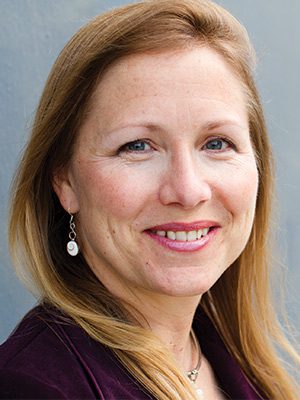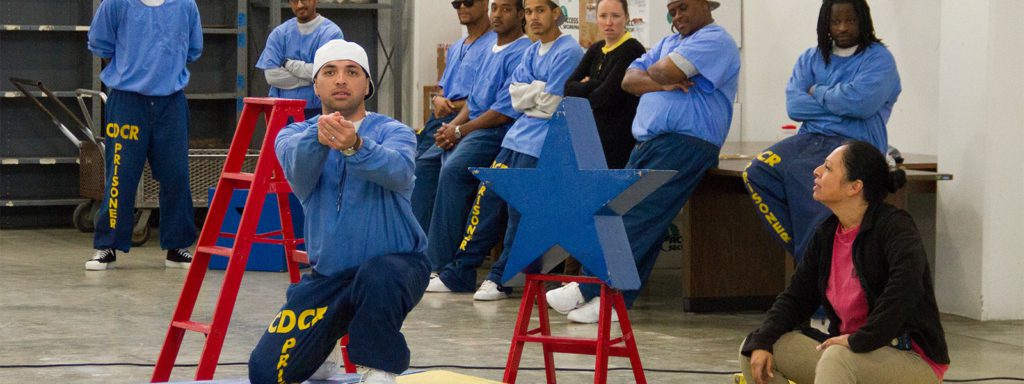By Karen Altree Piemme

Karen Altree Piemme. Artistic Director, Red Ladder Theatre Company, San José, California.
My company, Red Ladder Theatre Company, has been in place for 22 years, and our mission is to work with a wide variety of disenfranchised populations within the greater San Jose community – incarcerated youth and adults, homeless and runaway youth, pregnant teens, children and adults with autism, and generally people facing racism and marginalization.
About a year ago, the California Arts Council announced that they were bringing back the Arts and Corrections program, and Red Ladder was one of seven companies in the state of California to receive money to do this work in the system. One of the things that you discover when you’re in the prison environment is how incredibly segregated it is, not just by choice, but also for survival’s sake. The staff divides prisoners up by race, and it creates an environment that is designed to marginalize and isolate people to such a degree that their sense of themselves and how they relate to others has become really narrow. So when these guys can come together in a creative environment – when they walk into our theatre workshops and are so excited to see each other, embrace each other, and so many issues are brought up that they want to engage with, they’re able to not only express each of their own ideas individually but in a safe ensemble that can’t really exist anywhere else in the prison system.
In our performance workshops, we work with our participants to engage them in the creative process – they’ll come up with pieces they have created, and through this process they develop and express their creative thinking and problem solving skills, engage with their peers, and bring to life a lot of possibilities that they have previously been told are not available to them. One of the guys that I’ve worked with once told me, I bought a terrible lie. He said that everyone in his life had told him that his possibilities were very limited, and he believed it. He said that, as a result, he acted upon that belief and chose to conduct himself in a way that was in keeping with the low expectations that people had for him, and that he had for himself. And by being able to tap into his thoughts and his feelings and express them creatively through theatre, and to bring to life a variety of other possible options for himself and see that, if they could take place within the workshop environment, they could be real for him – he said this work had handed him the tools for transformation.
There are people we hear from who are really excited about the work that we’re doing, and there are people who question why we put the time, effort, and resources into this particular population. But for us, our work is based on the concept that the most fundamental human instinct is creativity– fish swim, birds fly, and human beings create. Regardless of what people might think about the kinds of things that have landed these people in prison, everyone has a right to tap into that thing that is most fundamental and makes them human. And when that opportunity, which has previously been denied to people, is given back to them, that’s when things get better and problems get solved in their lives, their families, their communities, and our society. The path to transformation begins with understanding that transformation is possible. And that’s the thing about theatre – that’s what art is all about.
Karen donates a portion of her income to activities supporting the transition from prison to life in the mainstream.



